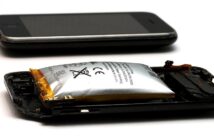We are curating a European Union benchmark report titled ‘can a lithium-ion battery fire be put out on a vessel’ in this mini series. However, their publication has a deeper purpose to explore the potential for lithium marine batteries generally. This forms part of a campaign to reverse global warming.
Why Switch to Lithium Marine Batteries for Water Propulsion?

The report’s first section concludes, “liquefied petroleum gas may be the preferred interim solution to reduce deep-sea marine emissions.” Moreover, this will continue until safety issues relating to lithium marine batteries resolve.
The European Union turns its attention next to small watercraft. Where it notes steady substitution of 75% lighter lithium batteries for lead-acid. It observes wryly how early sailboat experiments led to “disastrous and, on occasion, fatal consequences.” The Union believes these were down to immature technology, and suppliers being unaware of industry needs,
Ship Architects’ Future Role in Lithium Marine Propulsion
The EU encourages ship architects to take precautions to counter lithium battery fires and explosions. This should involve understanding lithium marine batteries as a system, as opposed to something a technician installs later.

Accordingly, they must work in harmony with lithium battery manufacturers to ensure their products incorporate the right design requirements. Here, the European Union envisages “cells, sensors, and battery management electronics that would equal a laptop or mobile phone.”
Incorporating lithium marine batteries in large vessels has been slow. The Union ascribes this to “inertia in adopting new technologies, and the perceived greater risk.” It also notes how control over shipping industry emissions is lagging generally.
Pollution control in deep-sea waters has been unsuccessful to date because these are difficult to patrol. Hence, the shipping industry may be more likely to adopt lithium marine batteries for economic reasons, as opposed to accepting its environmental responsibilities.
Related
Marine Lithium Batteries: EU Update 1
Thermal Runaway What Sailors Fear
Preview Image: Diesel Generators Onboard a Dredger




